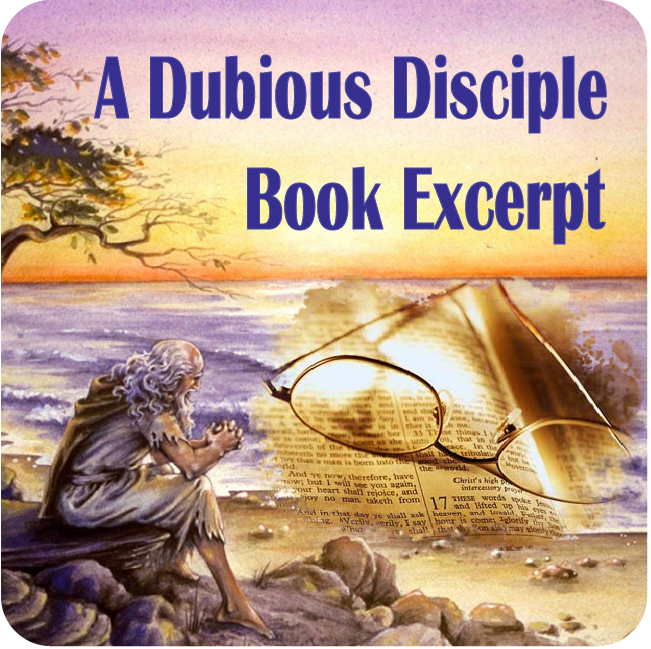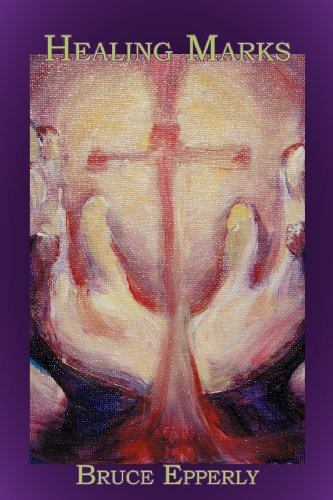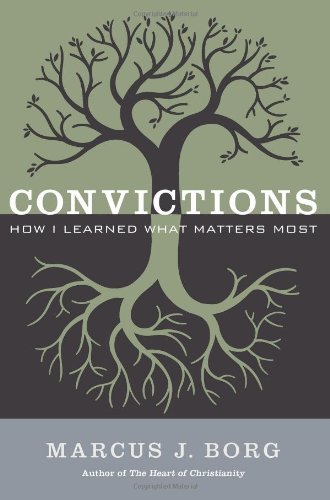Book review: Healing Marks
by Bruce Epperly
★★★★
Reverend Bruce Epperly, Ph.D., is more than an ordained minister: he is also a reiki practitioner and teacher. He has published many times, including a book about Process Theology that I found very intriguing.
Healing Marks is far from a fringe journey into alternative medicine; it is an examination of Jesus’ purpose and healing practices, and how they can relate to today’s world. Says Epperly, “I am a firm believer in prayer and Prozac and meditation and medication as instruments of God’s healing power.” Epperly’s discussion of his own healing experiences are short and practical (he considers effective healing to be gradual and subtle in nature), far from the flamboyance of popular televangelists (whom Epperly thinks do a disservice to everyday people), and they do not overshadow the theological purpose of his book.
While I hold a certain curiosity about the workings of the healing ministry of Jesus, I really just don’t know how much can be read literally, and therefore how much we can experience today, beyond the placebo effect. Epperly himself doesn’t insist that we take all biblical healings at face value, or think that we can replicate them all today. This is good: where holistic healing is concerned, I confess skepticism and near-ignorance on the matter. Epperly’s conclusion, however, that love is the key to effective healing, is thought-provoking. Healing in this manner depends upon the interconnectedness of mind, body and spirit.
There’s no question that emotions affect the immune system, but Healing Marks goes much deeper than that. Epperly’s concept of God is not clearly defined, and he appears satisfied with leaving God a mystery. Yet Epperly is clearly a believer in something very magical underneath the surface of our material living: “I believe that our prayers radiate across the universe, unlimited by spatial separation of temporality. Our prayers can heal past memories, influence the future, and influence peoples’ lives and situations in distant places. … In an interdependent and dynamic universe, I believe that prayer creates a positive field of force around those for whom we pray. … Our prayers create an energetic openness at every level of life from cellular to spiritual through which God can act more decisively…” (pp 82-84).
Is there something to all this? has Epperly shed some light on the healings of Jesus? I honestly don’t know. Read it with an open mind; it’s well worth it.
Energion Publications, © 2012, 183 pages
ISBN: 978-1-938434-13-6

Leviticus 26:29, Driven to Cannibalism
And ye shall eat the flesh of your sons, and the flesh of your daughters shall ye eat.
//The book of Leviticus predicts that if Israel isn’t obedient, they will be put under siege, and the famine caused by the war will be so bad they they will be forced to eat their own children. Impossible, you say?
It happened … not once, not twice, but three times.
2 Kings 6 tells about a famine during the time of Elisha, when a woman is robbed of a meal. She appeals to the king:
And the king said unto her, What aileth thee? And she answered, This woman said unto me, Give thy son, that we may eat him to day, and we will eat my son to morrow. So we boiled my son, and did eat him: and I said unto her on the next day, Give thy son, that we may eat him: and she hath hid her son.
Lamentations chapter 4 tells of the Babylonian invasion of Jerusalem, and the famine then:
The hands of the pitiful women have sodden their own children: they were their meat in the destruction of the daughter of my people.
Finally, we have this warning in the gospels about the upcoming siege of Jerusalem:
How dreadful it will be in those days for pregnant women and nursing mothers! –Mark 13:17
The Jewish historian Josephus, writing about the war described by the gospels, tells of a woman from Bethezob who came to Jerusalem to worship and was trapped there by the Romans. She boiled and ate her own son. The Zealots (Jewish freedom fighters), smelling the meat, broke into her house and demanded their share, but when they saw what the poor woman ate, they left her alone.

Revelation 12:5-6, Israel as a Woman in Labor, Part II of II
And she brought forth a man child, who was to rule all nations with a rod of iron: and her child was caught up unto God, and to his throne. And the woman fled into the wilderness, where she hath a place prepared of God, that they should feed her there a thousand two hundred and threescore days.
//Yesterday, I pointed out that Revelation’s “great wonder,” a woman in heaven in labor, surely refers to Israel. I pointed out other scriptural passages which speak of Israel as a woman in labor.
Today, I want to refine this definition a little. Revelation is a study of contrast: good versus evil, the Lamb versus the beast, the New Jerusalem replacing the old Jerusalem … and the whore of Babylon contrasts with the woman in heaven.
This is a story of the birth of a new “nation,” guided by the holy child, Jesus. Revelation posits that a new Israel–the Christians–will escape from the old Jerusalem, which is destined for destruction. But what does this mean?
Read again today’s verse about the woman fleeing into the wilderness. It could refer to the literal escape of the Christians from Jerusalem just before it was put under siege by the Romans in 70 A.D. The Christians left Jerusalem and lodged in Pella, as told by Eusebius and others. Like Israel’s escape from Egypt to form a new nation, the Christians escape from Jerusalem to forge a new Israel.
The Gospels later chronicle this escape of the Christians (although written, of course, from a prewar point of view). For example, here is Luke 21:20–22: When you see Jerusalem being surrounded by armies, you will know that its desolation is near. Then let those who are in Judea flee to the mountains, let those in the city get out, and let those in the country not enter the city. For this is the time of punishment in fulfillment of all that has been written.

Revelation 12:1-2, Israel as a Woman in Labor, Part I of II
A great and wondrous sign appeared in heaven: a woman clothed with the sun, with the moon under her feet and a crown of twelve stars on her head. She was pregnant and cried out in pain as she was about to give birth.
//Who is this mysterious woman in heaven? In my book about Revelation, I wrote the following:
“Some have prematurely compared the woman to Mary, the mother of Jesus. But Mary’s status within the Christian story grew over time; at the writing of Revelation, she played a part nowhere near the “Virgin Mary, Mother of God” status now portrayed in Catholic tradition. As far as we know, the birth stories we read in Matthew and Luke had not yet even surfaced.
“We can make easier sense of John’s vision if we consider the woman as simply the true believers of Israel, God’s chosen few. This alludes to Joseph’s dream in Genesis 37, where the sun and the moon denote Joseph’s father and mother, and the twelve stars represent him and his eleven brothers” –Revelation: The Way It Happened, p. 139
I offer little explanation for this interpretation in my book, but Israel is actually depicted as a woman in labor several times in the Bible. Here are some examples:
Before she travailed, she brought forth; before her pain came, she was delivered of a man child. Who hath heard such a thing? who hath seen such things? Shall the earth be made to bring forth in one day? or shall a nation be born at once? for as soon as Zion travailed, she brought forth her children. –Isaiah 66:8-9
For I have heard a voice as of a woman in travail, and the anguish as of her that bringeth forth her first child, the voice of the daughter of Zion, –Jeremiah 4:31
Be in pain, and labour to bring forth, O daughter of Zion, like a woman in travail –Micah 4:10
What is it that makes this interpretation so interesting? More tomorrow.

Book review: Make Christmas Real
by John Henson
★★★★★
I loved it! The first Christmas comes alive in this book, in typical John Henson form. Throw what you thought you knew about Christmas out the window. The really, really humble birth of our Lord is even more precious than the manger scenes portray. The first half of the book is a story to be treasured.
Henson and Ray Vincent then collaborate on a few practical Christmas-themed sermons in the second half of the book. If you find the holiday season to be too commercial and exhausting, these chapters will be a breath of fresh air.
I confess, I didn’t always follow how some of the themes relate to Christmas. Henson’s endorsement of Harry Potter books as Christian literature threw me a little. Not that I’m no fan of Harry Potter, it’s just…
…oh, hey, maybe I’m getting the connection now. The wizards who visited the baby Jesus from the East, right? The misfits that today’s manger scenes turn into three kings, because wizards just won’t do? We can’t have magicians from the land of Zoroastrianism with their star-gazing and occult practices in our Christmas story. That would be like us today welcoming New Age spiritual freaks into our church.
One of Henson’s finest, cover to cover.
AuthorHouse, © 2014, 118 pages
ISBN: 978-1-4969-7894-3

Book Excerpt: John’s Gospel: The Way It Happened
“You misunderstand something, Matthew,” John insisted. “Jesus came not to banish sin by force. ‘He was led like a lamb to the slaughter, and as a sheep before her shearers is silent, so he did not open his mouth.’”
“A little sheep?” Matthew sneered. “Then what happened to the mighty lamb of your vision? A proud horned ram, sitting with God on the throne, commanding worship? Able to remove the seven seals and open the scroll of war?”
“Yes, that’s what I wrote, but now I want to show you a different kind of lamb.”
“‘Worthy is the Lamb to receive power and wealth and wisdom and strength and honor and glory and praise!’” Matthew sang.
“Listen!” John commanded sharply. “I have received a different vision these last fifteen years.”
Matthew ignored him. “When the real Messiah comes, he will stand on Mount Zion with 144,000 other great warriors! He will storm down into the plains of Armageddon and slay an army of 200 million! He will oversee the torment of evil sinners in burning sulfur! The smoke of their torment will rise for ever and ever! That will be the reward of the sinful!”
“Jesus did come to overthrow sin, but not by destroying the sinful! He came to atone for our sin!”
“‘Fall on us and hide us from the wrath of the Lamb!’” Matthew bawled, still quoting from John’s letter, unperturbed by the gawking families on the other side of the courtyard. Ruth cringed, shaking her head as the tension once again threatened to boil over.
Matthew stabbed his finger again. “That’s what the kings of the earth will cry to the rocks and the mountains!” Then he turned to Ruth and spoke in his expository tone. “Enoch wrote about a great horned bull that morphs into a lamb with black horns. That’s what the Baptizer talked about, a heroic victory by the lamb, purging the world of sin. I’ve memorized these Scriptures, Ruth. Enoch wrote: ‘Purify the earth from all oppression, from all injustice, from all crime, from all impiety, and from all the pollution which is committed upon it. Exterminate them from the earth. Then shall all the children of men be righteous, and all nations shall pay me divine honors, and bless me; and all shall adore me. The earth shall be cleansed from all corruption, from every crime, from all punishment, and from all suffering.’”
John tried again, his own voice beginning to rise. “That may be what the Baptizer imagined, Matthew, but—”
“And the Testament of Joseph tells how the lamb overcomes evil beasts and crushes them underfoot. So that’s the kind of lamb John saw in his vision fifteen years ago, and—”
“Oy, a broch! I was wrong, you tiresome gnat!” John finally shouted back, rising up on one elbow and betraying a fire that should no longer live in one so old and skinny. Then he winced and turned his face in shame, blowing a sigh through pursed lips. “I mean, everything I wrote of my vision came true, but not in the way we expected. Please, Matthew. Listen to me.”
–John’s Gospel: The Way It Happened, 2013, by Lee Harmon

James 2:14, The Ebionite Church and the Judaizers, Part II of II
What doth it profit, my brethren, though a man say he hath faith, and have not works? can faith save him?
//Yesterday, I introduced an offshoot of Christianity called the Ebionites. This church did not ascribe divinity to Jesus, nor did they believe in the virgin birth. They focused on a works-based mission, like today’s verse from the epistle of James. Who were these guys, really, and how did they stray so far from Christianity?
We have no writings from them–we have only later writings rejecting and refuting their views–so we don’t know for sure who they were, how they originated, or what they really taught. You may be familiar with Justin Martyr’s debate with Trypho, a Jew, in the middle of the second century. Justin acknowledges those who call themselves Christians yet do not view Jesus as God. This fits the Ebionites.
It is certain that the Ebionites stemmed from Jewish Christianity, probably as an offshoot of the Jerusalem church. They were probably the remnants of the church which escaped from the city just prior to the destruction of Jerusalem in 70 CE, and they were probably the “Judaizers” whom Paul vehemently opposed.
Of course, we all know the leader of that first Jerusalem church. It was the brother of Jesus himself: James the Just.
Some critical scholars, such as A. T. Robinson in Redating the New Testament, propose that the book of James, attributed to the brother of Jesus, actually was penned by his very hand. It does indeed mirror Ebionite thinking, unmystical, ethical and practical, teaching a works-based salvation. Just like the Ebionites. Little surprise that this epistle has gained few followers, even in today’s time. Many Orthodox Christians have questioned whether it is Christian at all, for, as Luther explained (who used to tear it from the Bible whenever he found it), it advocates merely goodness and self-restraint and teaches nothing of justification by faith.
The Ebionites were no more popular than the brother of Jesus who probably founded their church. They survived in any numbers only into the second century, when they were deemed heretical, roundly denounced by Irenaeus as little different from the Jews, and appear to have dissipated over time.

Galatians 2:14, The Ebionite Church and the Judaizers, Part I of II
But when I saw that they are not walking uprightly to the truth of the good news, I said to Peter before all, `If thou, being a Jew, in the manner of the nations dost live, and not in the manner of the Jews, how the nations dost thou compel to Judaize? –Young’s Literal Translation
//These are the words of Paul, criticizing Peter for spreading a Judaic version of Christianity.
You may have noticed in my writings, including my books about Revelation and John’s Gospel, that I appear sympathetic to a second-century strand of Christianity called the Ebionites. Why do I consider this version of Christianity important? Let me explain.
“Ebionite” is Aramaic for “the poor.” It is a title they applied to themselves. They were strict followers of the Law, and kept both the Sabbath and the Sunday observance of the Lord’s Day. They circumcised, they faced toward Jerusalem when they prayed, and they held daily ritual baths (besides the initiation of Christian baptism), so it seems like they did everything wrong by not discarding Judaic customs. To be fair, though, they did oppose Temple worship and sacrifice.
The scriptures we have condemn these practices, as if our writers were putting words on the lips of Jesus specifically to oppose Ebionite thinking.
It gets worse. Ebionites used some form of the Gospel of Matthew, but omitted the account of the virgin birth. They did not believe in Jesus’ divinity, but saw him as a great new teacher endowed with divine power, in opposition to John the Baptist. They hated Paul, considering him an enemy of the faith, though they agreed with Paul’s adoptionist beliefs. They were probably more frustrated with pseudo-Pauline writings than with Paul’s own ideas. Yet Paul’s claim that Jesus died as a sacrifice appalled them.
Why should we pay any attention to these heretics at all? More tomorrow.

1 Corinthians 1:10, Division in the Church
Now I beseech you, brethren, by the name of our Lord Jesus Christ, that ye all speak the same thing, and that there be no divisions among you; but that ye be perfectly joined together in the same mind and in the same judgment.
//Many people seem to have the mistaken idea that there was only one form of Christianity in the first century. That the apostles themselves took the words of Jesus straight to the rest of the world, so that there would be no discrepancy.
The common opinion is that divergent opinions about Jesus, such as Gnostic Christianity, evolved later by heretics attempting to corrupt true Christian teaching. Not true. The earliest Christian writings in our possession…the letters of Paul…show how diverse Christian beliefs were from the very beginning. Paul wrote to the Galatians and the Romans urging them to ignore the teachings of the “Judaizers.” He wrote to the Corinthians trying to persuade them about his understanding of the resurrection (apparently, some believed in life after death but not in the resurrection of the dead.) He tried to clear up divisions and disagreements on the role of the Spirit.
The Ebionites, who probably stemmed from the earliest church in Jerusalem, eschewed Jesus’ divinity and virgin birth. I’ll write more about the Ebionites in future posts, but Jewish Christians worshipped differently than Gentile Christians, and Gentiles were badly splintered. Some followed the teachings of Apollos, some the teachings of Peter, some of Paul. Apollos taught only “the baptism of John the Baptist,” having heard of no other. Some Christians insisted on celibacy, others on strict dietary rules, and some even accepted incest on the basis of Christian freedom.
All these Christian doctrines are described in the Bible. There simply was no established universal system of authority, and no standard belief system. Paul himself went out as a missionary having not consulted with the apostles and disagreeing with much of what the church of Jerusalem taught, and his ideas are preserved in epistle form, so today we tend to think his ideas were the norm, but that is unfair. We cannot rightly speak of “early Christianity,” but of “early Christianities.”

Book review: Convictions: How I Learned What Matters Most
by Marcus J. Borg
★★★★★
Yes, I’ve read most of this before, since I’ve devoured most of Borg’s books. A number of the topics in What Matters Most are rehashes, yet as Borg looks back on his life (he just turned seventy) and recounts the lessons he learned of greatest importance, these topics seem to take on new life. This is a personal, friend-to-friend, heart-felt discussion, as Borg tries to share his wisdom without being an “opinionated old fool.” Marcus, it’s wonderful … thank you.
We live in a time of deeply divided American Christianity. It’s not a matter of denominational differences anymore, but of conservative versus progressive thinking. Progressive Christianity is growing, contrary to what some may have you think: a recent poll shows 28% of Americans are on the “religious conservative” end of the spectrum, while 19% are “religious progressives.” The latter is Borg’s perspective, as he recounts both the goodness and mystery of God. Borg’s very personal description of his own mystical experiences (which lean toward panentheism) and lack of certainty regarding what happens after we die are likely to hit home.
Espousing the “radical protest against economic injustice and violence” of his favorite Old Testament prophet Amos, and comparing that to the pacifistic teachings of Jesus (which does not mean passive acceptance of injustice), Borg will make you think and feel differently about what it means to be a Christian in the military empire we call America.
Loving God means loving what God loves. That’s what a Christian life is all about: becoming passionate about God and participating in God’s passion for a different kind of world. Whatever mysteries hide beyond this life, we leave that up to God.
HarperCollins, © 2014, 241 pages
ISBN: 978-0-6-226997-3


















 354 Circles
354 Circles
 603 Goodreads Friends & Fans
603 Goodreads Friends & Fans

 Hello! I'm an author, historical Jesus scholar, book reviewer, and liberal Christian, which means I appreciate and attempt to exercise the humanitarian teachings of Jesus without getting hung up on any particular supernatural or religious beliefs.
The Bible is a magnificent book that has inspired and spiritually fed generations for thousands of years, and each new century seems to bring a deeper understanding of life’s purpose. This is true of not only Christianity; through the years, our age-old religions are slowly transforming from superstitious rituals into humanitarian philosophies. In short, we are growing up, and I am thrilled to be riding the wave.
I avidly read all thought-provoking religion titles. New authors: I'd love to read and review your book!
Hello! I'm an author, historical Jesus scholar, book reviewer, and liberal Christian, which means I appreciate and attempt to exercise the humanitarian teachings of Jesus without getting hung up on any particular supernatural or religious beliefs.
The Bible is a magnificent book that has inspired and spiritually fed generations for thousands of years, and each new century seems to bring a deeper understanding of life’s purpose. This is true of not only Christianity; through the years, our age-old religions are slowly transforming from superstitious rituals into humanitarian philosophies. In short, we are growing up, and I am thrilled to be riding the wave.
I avidly read all thought-provoking religion titles. New authors: I'd love to read and review your book!
 Hi! While Lee writes the articles and reviews the books, I edit, organize, and maintain the blog. The views expressed here are Lee's but I'm his biggest supporter! :-)
Hi! While Lee writes the articles and reviews the books, I edit, organize, and maintain the blog. The views expressed here are Lee's but I'm his biggest supporter! :-)
Connect With Me!